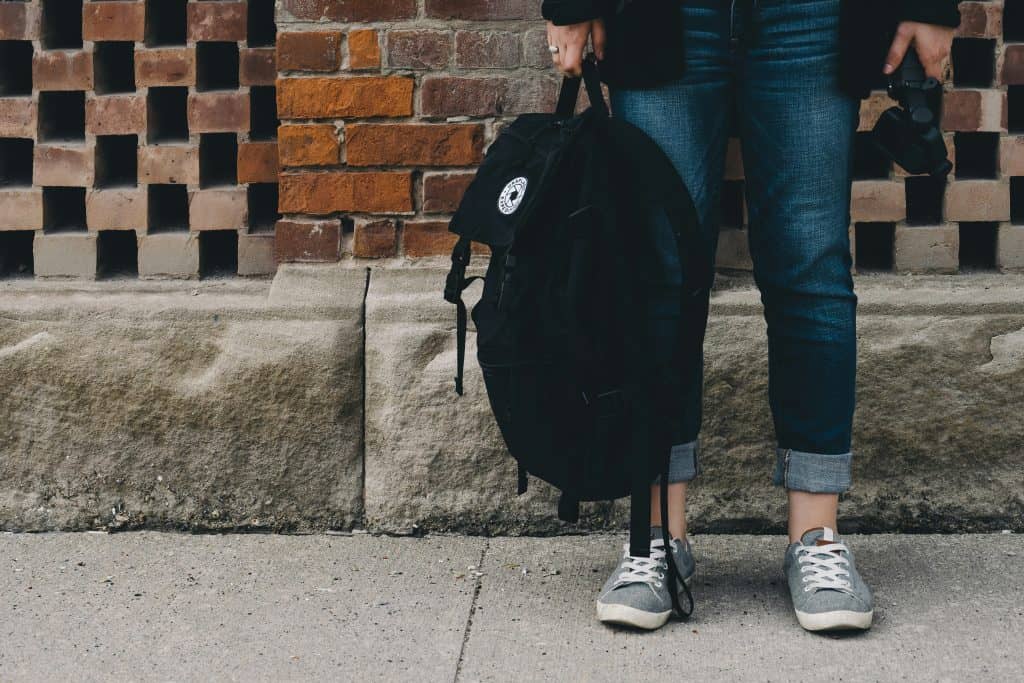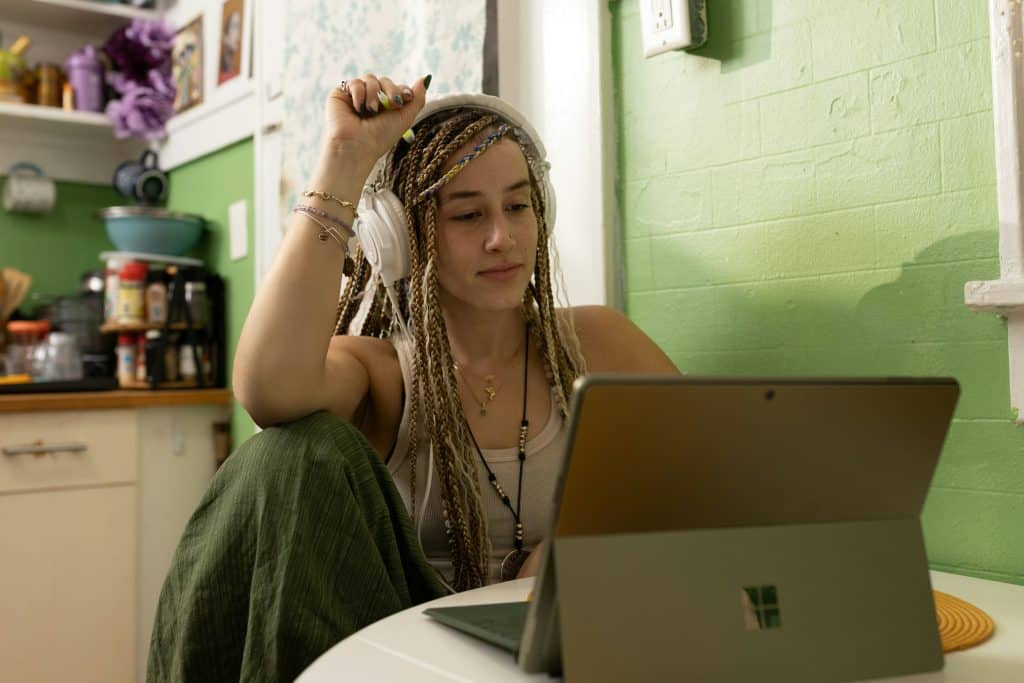
Have you ever wondered why you can’t just sit still, focus, and study for an upcoming test? Well, it’s not as easy as you think. That’s why I’m sharing exclusive tips and tricks on how to stop procrastinating and start studying!
But before we get started, let’s discuss what procrastinating actually stems from?
Procrastination is the act of delaying or postponing tasks, despite knowing that doing so may lead to negative consequences.
Procrastinating involves putting off important activities in favor of less urgent or enjoyable ones, often resulting in a lack of productivity and increased stress.
It infiltrates every area of our lives when we need to get something done. House chores, challenging work projects, filing taxes, and homework aren’t really fun activities people look forward to.
Most people would rather take pleasure in a hobby, eating their favorite snack, or engage in an activity for leisure.
Come on…Would you rather take a trip to an ice cream parlor after class or the library?
I’m pretty sure most students would choose a scoop of ice cream over reading a boring textbook.
But, if the end goal is to pass your class, improve your GPA, or graduate on time, the library needs to be added to your schedule a few times a week.
Before you can master how to stop procrastinating and start studying, you need to pinpoint the root cause of why studying is such an arduous task for you to do?
Why do I procrastinate when I have to study?…Discomfort.
We usually procrastinate on tasks that make us feel uncomfortable or unhappy. Reading a large amount of text for hours about a topic you have no interest in doesn’t feel pleasant.
When content isn’t easy to consume or understand, it’s even harder to dedicate time to studying it.
Sometimes, more pressing concerns trump studying in your personal life. Anytime you feel sick, a little sad, upset, or worried, it makes it hard to focus.
Students deal with more than just turning in assignments, taking exams, and extracurricular activities.
You’re experiencing life simultaneously where there are familial circumstances, relationships, and friendships that need to be invested in and managed.
RELATED POSTS:
Time Blocking: How To Get More Done In Less Time?
5 Reasons Why Time Is Important
Resolving relationship issues and fostering friendships are priorities, but so is your education. There needs to be a healthy way to balance the conflicting priorities in your life.
Sure, you can come up with a study schedule, but how disciplined or motivated are you to stick with it when life circumstances come your way?
Procrastinating isn’t always because of challenges.
The mere thought of completing boring or difficult tasks can make your anxiety skyrocket to the point you feel overwhelmed.
Stress is something our brains and bodies naturally resist. Most high school and college students don’t want to read long drawn out chapters in a Biology book all night.
Cramming in your studying at the last minute hoping to comprehend all the information in one sitting, always backfires.
When you don’t have any effective studying strategies, the procrastination will continue.
So, what’s the solution? Get comfortable being uncomfortable.
Juggling life’s challenges won’t abruptly stop after graduation.
Once you step foot into your career and gain even more financial responsibilities, studying will feel like an effortless task.
Until then, learning how to stop procrastinating and start studying can be done with the right strategies.
How can I stop procrastinating while studying?
There are several tips, tricks, and strategies you can find across the internet that will help you focus better and study effectively over time, but sometimes, you just need a quick fix.
The more you avoid studying or completing assignments, the more uncomfortable and anxious you will feel as deadlines approach.
Procrastination is associated with your inability to regulate the emotions you have attached to a particular task.
Just because you are putting off homework in more challenging subjects like math or science, doesn’t mean you have an issue with time management. Try to get to the root of the problem.
What are some childhood traumas that you associate with certain academic subjects?
Did you previously perform poorly in Algebra?
Does the idea of learning something new or complicated make you anxious? Is how long it takes to complete a project or write an essay stressing you out?
Are there other responsibilities pushing your study habits further down your priority list?
Identify what’s affecting your emotions, then face your fears.
I remember being hesitant about enrolling in certain academic courses, because I wasn’t successful at them in the past.
It’s easier to accept that you’re not good at something rather than working hard to change the narrative.
When you get in the groove of a study routine and have more confidence when those good grades start rolling in, you can kiss procrastination goodbye.

RELATED POSTS:
3 Unexpected Benefits Of Daily Routines
How To Unlock Your Potential With An Intentional Routine?
How to stop procrastinating and start studying in 20 ways?
- Set up an ambiance with different lighting and diffuser scents (citrus will instantly uplift your mood)
- Watch ‘study with me’ videos on YouTube
- Try different ways of studying
- Play different songs that will get you into the zone (select one song that activates your brain each day and put it on repeat)
- Add bold colors, texture, and tactile notebooks to your study materials like highlighters, tabs, folders, construction paper, and notecards
- Study in a cozy cafe or public place that brings you solace
- Fuel your body and mind with food so you’re not thinking about eating
- Use spaced repetition for your studying habits – Revisit learned information each week prior to your exam in systematic intervals
- Use recall methods to avoid cramming or staying up late to prepare
- Try doodling to assist with boosting your memory about the subject you’re learning
- Fill up a water bottle to use for hydration and a timer – Study until your water bottle is empty. This will take away the pressure of timers, distracting apps, etc.
- Become a ‘studying’ content creator on social media – film videos of yourself explaining the content to your followers, watch it back to revise it, try to make it interesting and creative
- Listen to pink noise to concentrate
- Review notes after every class for at least an hour – midterms, quizzes, final exams are easier to do when you’re reviewing notes consistently each day.
- Engage in active studying, such as handwriting notes, and writing the key points to organize the information in your brain
- Read the text to yourself, read it aloud, then retell it in your own words, write keywords and terms from memory
- Form a small study group with a classmate or friends
- Reward yourself after each day of studying with something you enjoy
- Get help from the tutoring center, a teacher, or classmate to give you another overview of the lesson to understand what you’re doing beforehand
- Redefine what success looks like for you, such as a passing grade in the class, more participation points, or completing your part in the group project
What is the best anti-procrastination routine?
If you’re stuck in bed, get out of it to make it.
Be strict with your environment, use time management and focus apps, turn your laptop off, change the lighting or scent based on where you’re studying.
Romanticize your studying routine. Get some green tea; listen to classical music or instrumental versions of your favorite songs.
Do a brief countdown from 5 on your phone, then put it away so you’re not tempted to pick it up.
Read a fiction book right before you study.
Study for a half hour, then take a break for a few minutes to do something you enjoy as a treat. This studying technique will improve your efficiency.
Select an anti-procrastination day using a running task list of things you struggled to work on throughout the week. Pick one thing to work on at a time on your overwhelming to do list.You can knock out each task by setting aside this time to get them done.
Take short 5-10 minute incremental breaks to help your brain overcome your resistance to a particular activity. The compact time frame makes it feel less daunting. Incremental time frames will help you meet your academic goals overtime.
Some other helpful tips and tricks for how to stop procrastinating and start studying include:
- Stop studying in your dorm room or bedroom
- Make sure you’re in a particular place where you won’t get interrupted by people you know
- Correlate facts you’re learning with things you already know (active studying will help with memorizing the material)
- Use the SQ3R and Leitner System studying methods
- Follow the five-minute rule. Set 5 minutes on a timer and fully focus on starting a task that you’ve been putting off for too long. This technique helps to initiate the task while motivating you to keep going.
These are 5 ways you can stop procrastinating and be productive instead!

How do I rewire my brain to stop procrastinating?
When you have so much work to complete at one time, you’re more likely to do everything but ‘start’.
With exams scheduled back to back, you’re more apt to procrastinate and spend the bulk of your focus on unproductive activities.
Thankfully, I’ve got the perfect hack you can use to rewire your brain to stop procrastination!
The Pomodoro Technique is the hack every student needs to know if they want to beat procrastination. It’s a technique designed by Francesco Cirillo with only four simple steps to follow.
The Pomodoro technique involves short 25 minute sprints for studying and 5 minute breaks or longer, depending on the length of your sprints.
Think about it.
If you only complete one sprint for the day, you‘ve spent 25 minutes studying.
That’s better than nothing!
Adding this strategy to your studying routine will make it easier for you to stay on task and get more things done.
Here’s an example of how it works!
- Select one subject or assignment to focus on, such as studying for a test or completing an assignment, or cleaning your room.
- Set a 25-minute timer and work on that task with no interruptions. If you get distracted, you will need to reset the timer.
- Reward yourself with a 5-minute peaceful break
- Repeat the cycle as many times as you need to get the task completed
- Now take a longer 20 minute break in between the next task on your to-do list
This anti-procrastinating routine helps you manage distractions, plan your time effectively, and decrease stress because it forces you to focus on one project at a time. Make studying more your goal this academic year and achieve it effortlessly.

I teach entrepreneurs how to simplify their life and business with less + own their time and maximize productivity towards their personal and monetary goals.









 @saray_plans
@saray_plans


Leave a Reply